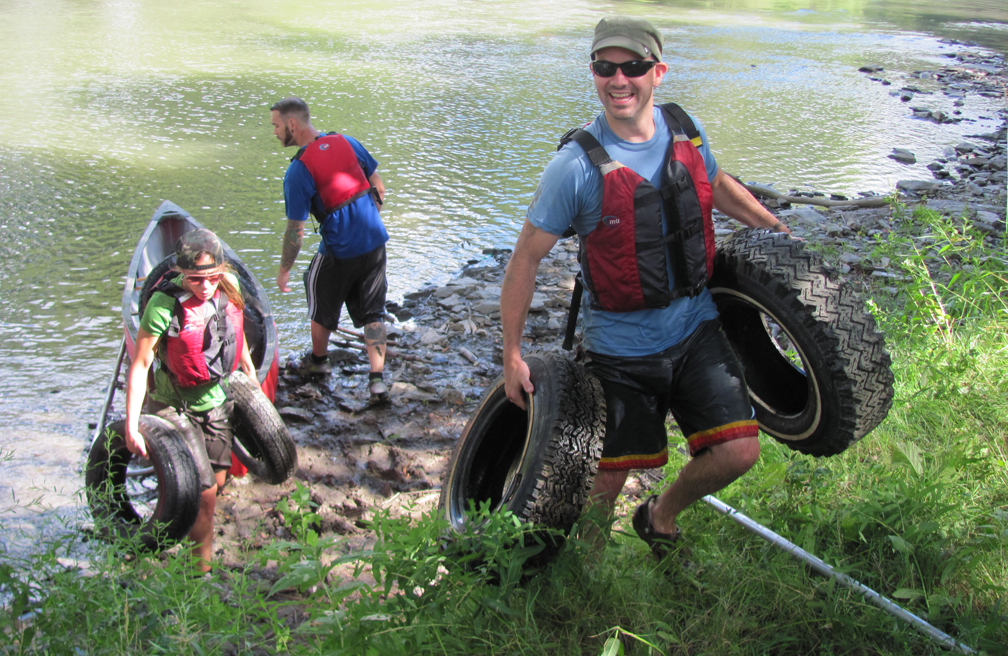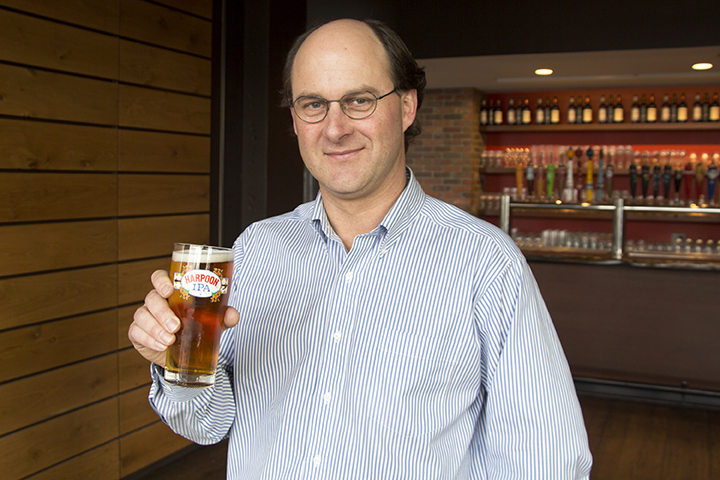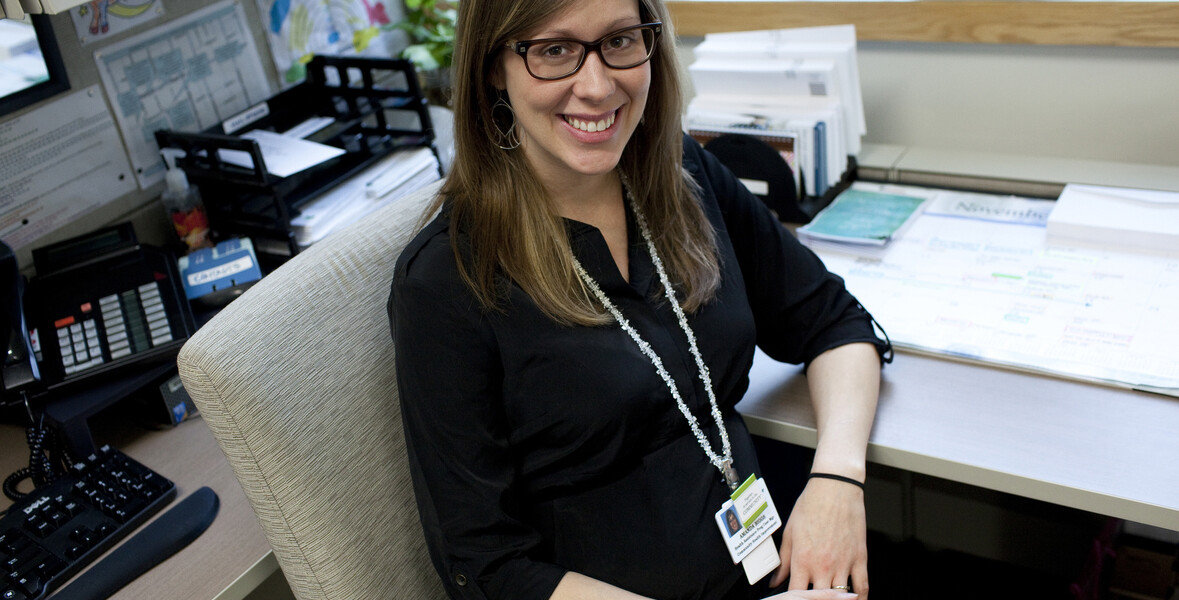Photo: Elliot Kennedy, left, with Health and Human Services Secretary Sylvia Mathews Burwell
![]() Elliot Kennedy JD, realized as an undergraduate that advocating for the LGBT community provided a sense of purpose and fulfillment. The 2009 alum—who helped guide and implement the availability of preferred names in the student information system at UVM—is now the Senior Advisor for LGBT health in the U.S. Department of Health and Human Services.
Elliot Kennedy JD, realized as an undergraduate that advocating for the LGBT community provided a sense of purpose and fulfillment. The 2009 alum—who helped guide and implement the availability of preferred names in the student information system at UVM—is now the Senior Advisor for LGBT health in the U.S. Department of Health and Human Services.
We talked to Elliot about LGBT health policy, building a network, and making a difference in the LGBT community.
After graduating from UVM, you went on to law school and earned your JD. Why were you drawn to LGBT law and healthcare policy?
One of the things I find most interesting about LGBT law and policy work is that people in this field often become experts across a broad range of issues as there are similar barriers to access and equity.
I focused on health policy and access to healthcare in part because of the passage of the Affordable Care Act (ACA) in 2010, but also because of a personal interest in healthcare (which was fueled in part by my experiences as a transgender person trying to access care).
Research has shown a long history of anti-LGBT bias in healthcare despite increasing social acceptance. What kind of progress has been made in recent years regarding LGBT healthcare? Is the tide turning?
Yes, the tide is definitely turning. In the six and a half years since the Affordable Care Act (ACA) passed (and thanks to many, many other actions that we have taken), we have made dramatic progress towards ensuring that LGBT people have access to non-discriminatory and culturally competent health care.
I won’t list everything here, but I think these past few years have really been a sea change towards better access and better care for LGBT people. Before the ACA, transgender people and people living with HIV/AIDS could be denied healthcare because of a pre-existing condition. Until the Department of Health and Human Services took action in 2010, LGBT people in hospitals were often not permitted to have their family members visit them, and their advance directives were not always honored.
The Department of Health and Human Services released final regulations this year making it clear that under the ACA, discrimination based on sex—including gender identity and sex stereotyping—is not permitted by entities covered under the law. We have also made it clear that transgender people have the same access to the sex-specific preventive services available under the ACA that all people do, regardless of their sex assigned at birth, gender identity, or gender recorded by their insurance plan or doctor.
As someone who still often encounters issues in the doctor’s office or with insurance companies, I know policy change, education, and outreach isn’t always immediately felt, and that can be frustrating and infuriating. But I think the groundwork has been laid now such that LGBT people should expect equality in healthcare and coverage.
What advice would you give someone thinking about working in LGBT policy or advocacy?
The community of people that I know doing this work is vibrant, energetic, extremely passionate, often personable, not always great at self-care, and utterly wonky. They are lawyers, social workers, psychologists, community organizers, researchers, and statisticians, among many others.
Some things to consider about this field:
- Now is a great time to get involved. We make amazing progress every day, and it is incredibly rewarding work.
- That also means that more and more people want training and education and want to learn about LGBT people. There amazing resources out there to help you become a better teacher and trainer. Even if you don’t want to do full-time LGBT work, getting better educated about how LGBT communities relate to your other area of interest is something that everyone can/should do.
- Non-LGBT organizations do a ton a great LGBT work. Professional associations, law firms, community health centers, local/state/federal governments, think tanks, and countless others are places where you can be a full- or part-time LGBT advocate.
- To work in LGBT policy or advocacy, you definitely do not have to work at a national LGBT advocacy organization (although you certainly can).
- For LGBTQ individuals, it’s important to think about self-care and burnout. For non-LGBTQ individuals the same applies, but I think it’s also important to be thoughtful about how you will lift up LGBTQ people in your work.
How did your experience at UVM help prepare you for your career?
Helping advocate for and then implement the availability of preferred names and pronouns in the BANNER system at UVM taught me a lot about myself and the way that I like to work. I am extremely and unabashedly interested in navigating bureaucracy and figuring out how to get things done. Through that project, I also learned the importance of a good, in-the-weeds, diverse team, recognizing that you are going to get things wrong, and why getting things wrong shouldn’t stop you from making progress.
Did anyone ever give you advice along the way that has paid off?
Networking, which is awful, is just talking to interesting people about interesting things—which is less awful. Like job hunting, almost no one has the energy or resilience to do it 100 percent of the time, but it is essential. Every job or internship that I have had since leaving UVM was in part thanks to building a network.
What is one piece of advice you wish you had received along the way?
At least for me, grappling with finding jobs and building a career has always also involved sometimes questioning my decisions, not having the energy to meet new people, and generally wishing I could retreat to the woods and live in solitude. When I give myself time and space to refocus and reground, my outlook improves and so does my energy. I think that’s probably true for most people as we have natural cycles and nothing in nature blooms all year.
One piece of advice that I wish I had received sooner than I did is to be more forgiving of myself and others, and to take good care of my mental health in addition to my physical health. This is hard, and it’s OK to admit that it’s hard and take care of yourself as part of the process.




